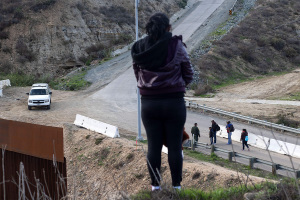Israel's Foreign Affairs Committee Urges Stronger Ties to Latin American Evangelicals
The Knesset Foreign Affairs and Defense subcommittee on Foreign Policy has urged the Israeli government to develop stronger relationships with evangelical Christians, not just in the United States but around the world.
The Knesset is the unicameral legislature of Israel, responsible for passing all laws, electing the president and overseeing the actions of the government.
One of the focuses of the subcommittee's Chairman Robert Ilatov and member Einat Wilf is the state of evangelicals in Latin America, particularly the growing prominence of evangelicals in Brazil, according to The Jerusalem Post.
Latino evangelical Christians are one demographic that is rapidly expanding due in part to a growing trend showing them leaving Catholicism for evangelical Christianity, according to Foreign Ministry representative Shmuel Ben-Shmuel.
Ben-Shmuel explains that there are about the same number of evangelical Christians in the United States as there are in Brazil- approximately 60 million. But it is the organization and effectiveness at enacting change that differentiates the two groups.
Evangelicals in the U.S. are more organized and politically active, which allows for certain beliefs and values to be recognized on a national level, he said.
The Foreign Ministry is currently attempting to reach out to televangelists in Latin America to speak about Israel and the mutual benefits a relationship could bring, especially to politically volatile regions, as reported by The Jerusalem Post.
But all this is just "the tip of the iceberg" when it comes to the Evangelical Christian community, Ben-Shmuel said.
Ilatov called for the ministry to increase its activity in Brazil, where there is "potential to change the government's positions" due to the large evangelical population.
Christian Allies Caucus President Josh Reinstein presented a more optimistic picture of Brazil, saying that of 16 prominent evangelical leaders, 10 are members of parliament.
Wilf said she finds it exciting that there is a "new, young generation in Latin America that sees Israel as part of the foundations of its faith," explaining the possibility of the Foreign Ministry to build lasting relationships with people in that region.
"It's fascinating that in South America, an area that we're used to seeing as either apathetic or anti-Israel, has hope for a deep change," Wilf said.
Wilf understands that a "transformation" of this magnitude could take up to 20 years while attempting to create pro-Israel sentiments in Brazil. Evangelicals there are "not used to translating their spiritual admiration to political support," she said.




























